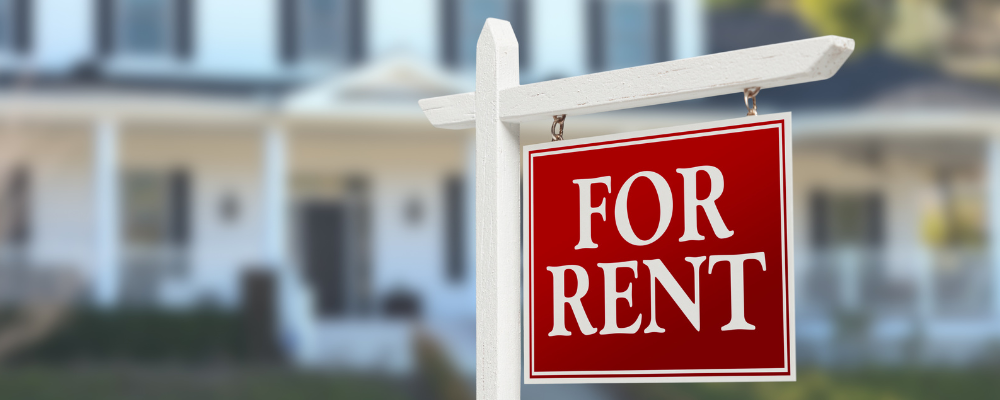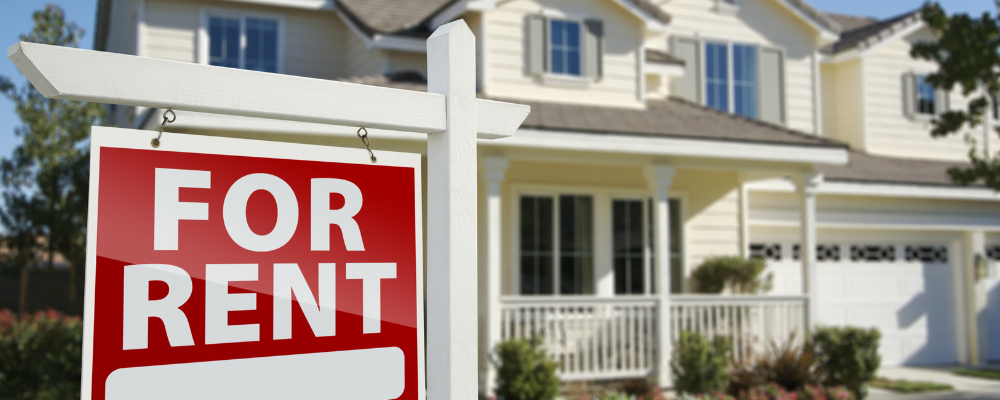Short Summary
Rental properties can be a steady source of income for investors and a great way to get into the real estate market or expand a portfolio. However, when thinking about how much profit should you make on a rental property, there are various methods you can use. These are:
- Cash flow (gross rent minus expenses)
- Capitalization rate (net operating income divided by purchase price and multiplied by 100)
- Cash on cash return (the annual cash flow divided by total cash invested and multiplied by 100)
- ROI (net profit divided by the total investment and multiplied by 100)
Jump To
How To Measure The Profitability Of A Rental Property
Rental properties can offer investors a steady stream of income and be an effective way to invest in real estate without having to be very hands on. Working out how profitable a rental property could be, is vital to the success of a real estate investor’s journey. Understanding a property’s potential profitability allows investors to make more informed investing decisions and therefore have more success with the rental property they choose.
There are various metrics that can be used to measure the profitability of a rental property and we’ll outline each of these in detail below.

Metric 1: Cash Flow
The cash flow of a property is the gross rent, minus the expenses of the property. These expenses include the mortgage payments, maintenance, property taxes, HOA fees and insurance. A positive cash flow is a situation where the income from the property covers all the expenses and leaves extra funds available. This leads to a higher profit and gives investors the chance to invest further.
Cash flow = gross rent – expenses
The cash flow calculation gives investors insight into the return on investment by indicating how much income they are likely to generate each month, and how much of this will be spent on covering the expenses. Using this metric, investors can work out their rough profit each month from a rental property to determine whether this is a feasible investment or not.
Metric 2: Cap Rate
The cap rate or capitalization rate of a rental property refers to the estimated rate of return. A low cap rate indicates a lower risk property, while a higher cap rate indicates a higher risk property. The level of risk that an investor is willing to take is a personal choice, however, this can be a useful metric to use when determining whether a rental property is likely to be profitable enough or not.
Cap rate = Net operating income / Purchase price x 100
The cap rate determines the rate of return on a property by using the net income and dividing this by the property’s purchase price and converting it to a percentage. A cap rate can be used to quickly compare the value of a property, relative to similar properties on the market. However, this metric should be used in conjunction with others, to determine the profitability of a rental property because it doesn’t factor in future cash flows, property improvements and other factors.
Metric 3: Cash on Cash Return
The cash-on-cash return metric can be used to measure the annual cash flow that a rental property is likely to generate. This calculation is based on the amount of cash that has been invested in the property and uses these two numbers to generate the cash-on-cash return, which is a good indication as to how much money an investor can make from the property in a year.
Cash-on-cash return = Annual cash flow / Total cash invested x 100
It’s important to note that the annual cash flow is calculated before tax. The cash-on-cash return is a relatively simple metric that shows the cash flow of a rental property, relative to the total amount of cash that has been invested in it. This will allow investors to gauge how profitable the real estate investment could be within a year.
Metric 4: ROI
Return on Investment (ROI) on a real estate investment like a rental property is one of the most crucial numbers to determine when you’re working out the answer to the question “how much profit should you make on a rental property?”. Return on investment (ROI) quantifies how much profit is generated from an investment as a percentage of the initial investment’s cost.
To calculate the ROI, you can divide your net profit by your total investment and multiply by 100 to express it as a percentage.
ROI = (Net Profit / Total Investment) x 100
Step 1: Determine the total amount of money that you’ve invested in the property. This includes the purchase price, closing costs, any renovation or repair expenses, and ongoing expenses like property taxes and insurance.
Step 2: Estimate your annual rental income from the property.
Step 3: Figure out all the expenses that the property will incur, including property management fees, maintenance costs, property taxes, insurance, and any other costs associated with the property’s upkeep. The net profit can be calculated by subtracting the expenses from the annual rental estimate.
Step 4: Use the ROI calculation to determine the return on investment and essentially how much profit you can make. The ROI percentage will indicate how profitable your rental property investment is. A higher ROI indicates a more profitable investment, while a lower ROI suggests a less profitable one.
Realistic Profit Targets For Investment Properties In The US
The average profit on real estate investments depends largely on factors like location, rental market and property prices. According to S&P 500, the average return on investment in the US property market is 8.6%. Residential properties earn an average return of 10.6%, and commercial properties offer a 9.5% return on investment. As a general rule, a cap rate of 5% or more is considered good ROI for real estate investments.
Are All Rental Properties Cash Flow Positive?

Definition Of A Cash Flow Positive Rental Property
To start generating profits, property investors need to select rental properties with positive cash flow. Positive cash flow occurs when the income generated from the property exceeds the expenses associated with its management and upkeep. If a real estate investor experiences negative cash flow, they are essentially losing money instead of reaping profits from their rental property.
Therefore, before investing in a rental property, property investors must conduct a thorough analysis of the real estate market to identify properties that have the potential for positive cash flow. Additionally, they should carefully calculate all potential expenses, plan their finances meticulously, and exercise wise spending practices. These measures ensure that the rental property will consistently generate and maintain positive cash flow.
Real Estate Markets That Produce Good Rental Returns
Raleigh, North Carolina has one of the best rental markets in the country. The city offers a median listing price of $389,000, and the city offers a successful higher end rental market. There are tech, science and research employment opportunities available in Raleigh which are bolstering the rental market. The population has been growing rapidly, thanks to the young professionals and families, which further adds to the demand for rental properties.
Boise, Idaho is another real estate market offering investors the chance to make good returns from rental properties. Boise has a strong job market, affordable housing and a growing population. The city has also experienced strong growth in the real estate market over the last decade and can offer a real estate investor solid returns on their rental property investments.
Another real estate market that investors can consider for rental property investment is Dallas, Texas. This is one of the most rapidly growing markets in the country, and the diverse real estate markets provides a great opportunity for both residential and commercial investors. The real estate market in Dallas has been growing over the last few years and this is expected to continue.
Notoriously Difficult Rental Markets In The US
Miami Beach, Florida is a rental market that has experienced huge monthly rent price increases and essentially, a runaway rent market. Recently, however these monthly rent prices have started to decline, however the market is unstable and certainly not a place where investors are likely to generate a steady income stream easily.
New York’s rental market remains a ruthless one, with rent prices at a premium with limited space. Last year, monthly rent prices hit record highs in the city, with competition for apartments becoming fierce. The application process has since become a nightmare, and last year, there was a major 36% increase in rent prices in the city.
Boca Raton, Florida is another area where the rental market is not prime for investors. Properties in Boca Raton certainly aren’t cheap and the maintenance isn’t either. Rent price growth is falling in 2023, and the cost of living in this city is high.
How To Increase The Profitability Of An Investment Property

Upgrades That Can Increase Rental Income
Strategic investment property enhancements can be instrumental in generating higher rental income. Consider the following upgrades that have the potential to boost the revenue generated from your real estate investment:
Kitchen Upgrade: Transforming the kitchen with contemporary appliances, countertops, and cabinets can attract tenants willing to pay higher rents for an updated and functional culinary space.
Bathroom Refurbishment: A well-maintained and modernized bathroom with new fixtures, tiles, and amenities can enhance the appeal of an investment property and justify higher rental rates.
Energy-Efficient Enhancements: Installing energy-efficient appliances, windows, and insulation not only reduces utility costs but can also be marketed as a cost-saving feature, allowing for increased rent charges.
Interior Aesthetic Improvements: Fresh paint and updated flooring can provide a clean and contemporary appearance, making the property more attractive and warranting higher rental fees.
Smart Home Integration: Incorporating smart home technology, such as thermostats, security systems, and lighting, can cater to tech-savvy tenants and potentially command higher rental rates.
Additional Amenities: Consider adding amenities such as in-unit laundry facilities, dishwashers, or even a fitness center if space permits. These conveniences can attract tenants and support higher rent pricing.
Curb Appeal and Landscaping: Enhancing the property’s curb appeal through landscaping and exterior upgrades can create a favorable first impression and potentially justify higher rents.
Ample Storage Solutions: The addition of storage options like built-in closets or extra shelving can enhance functionality and attract tenants willing to pay more in rent.
Security Enhancements: Implementing security features such as alarm systems or secure entry systems can boost tenant safety and provide added value, allowing for higher rent charges.
Pet-Friendly Features: If you allow pets, consider adding pet-friendly amenities like a fenced yard or pet wash station, which can attract pet owners willing to pay higher rents.
Furnished or Partially Furnished Options: Offering furnished or partially furnished units can justify higher rents, particularly in markets with strong demand for temporary or corporate housing.
Common Area Renovations: For multi-unit properties, upgrading shared spaces like lobbies, laundry rooms, or outdoor areas can improve overall property appeal and potentially command higher rents.
Before proceeding with any upgrades to a real estate investment, it’s crucial to conduct thorough market research to ensure that the increased rent will remain competitive and justified by the improvements. Additionally, consider local rental market conditions, your target tenant demographic, and the overall return on investment for each upgrade to make informed decisions that maximize rental income.

Renovations That Don't Actually Add Value
It’s important to bear in mind that not all renovations add value, and some can be a waste of time and money. Particularly when it comes to rental properties.
Excessive Customization: Overly personalized or niche renovations may not resonate with a broad range of potential buyers or renters, diminishing their value.
Poor Quality Workmanship: Shoddy workmanship or cheap materials can actually detract from a property’s value rather than adding to it.
Over-the-Top Luxury Upgrades: Investing heavily in extravagant, high-end features in a neighborhood or market where such amenities are not the norm can lead to diminishing returns.
Inconsistent Design: Renovations that disrupt the overall flow or design harmony of a property can make it less appealing and valuable.
Over-Improvement: Spending significantly more on renovations than the property’s potential resale or rental value can result in financial losses.
Unpermitted or Non-Compliant Work: Renovations that violate building codes or zoning regulations can create legal and financial headaches, potentially reducing property value.
Trend-Chasing: Renovations based on fleeting design trends may quickly become outdated and less appealing to potential buyers or renters.
Unnecessary Additions: Adding rooms or features that do not align with the property’s size or layout can be costly and yield minimal returns.
Neglecting Basic Maintenance: Focusing on cosmetic upgrades while neglecting fundamental maintenance issues (e.g., roofing, plumbing, electrical) can result in a lower property value.
Excessive Landscaping: Elaborate landscaping projects that require high maintenance or water usage may not add sufficient value to justify the investment.
Overly Personalized Color Choices: Bold or unconventional color choices for walls, floors, or fixtures can limit the property’s appeal to a broader audience. This can negatively impact the demand for this real estate investment.
Unpopular Amenities: Installing amenities that are not in demand within the local market, such as a swimming pool in a cold climate, may not provide a return on the real estate investment.
Final Thoughts
When trying to figure out how much profit should you make on a rental property, there are various metrics to consider. Each of these can be used to ensure that you are making an informed investment property decision, based on a good understanding and estimate of the rental property’s income potential, expenses and more. It’s important to use a few metrics, in order to gain a well-rounded understanding of how much profit you could make.



